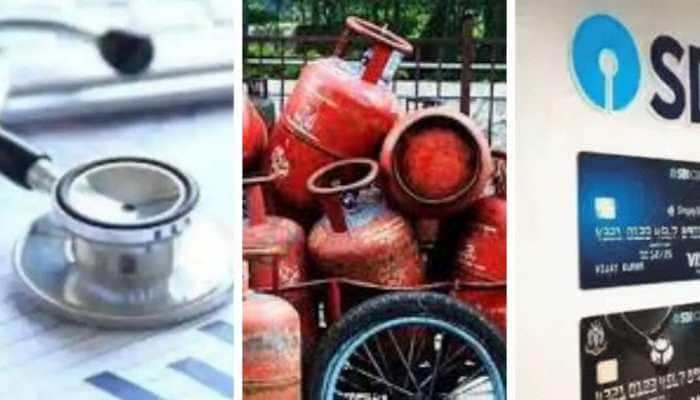Takata CEO says internal probe into failing airbags not progressing well
The head of Japan`s Takata Corp said an internal probe into its potentially deadly air bag inflators was not progressing well, but vowed to stay at the helm until trust in the safety of its products was restored.
Trending Photos
)
Tokyo: The head of Japan`s Takata Corp said an internal probe into its potentially deadly air bag inflators was not progressing well, but vowed to stay at the helm until trust in the safety of its products was restored.
Facing the media for the first time since the company`s recall crisis erupted over a year ago, Chief Executive Shigehisa Takada apologised for the defective inflators, which have been linked to eight deaths and more than 100 injuries.
The lack of progress in finding out why some of its inflators can deploy with too much force and spray metal shards is set to turn up the pressure on Takata as carmakers continue to expand a recall that is already the biggest in automotive history.
U.S. lawmakers this week also raised the possibility that the company put profits before safety by halting global safety audits. Takata has disputed the accusation.
"The analysis isn`t progressing very well," Takada told a news conference that followed the company`s annual general meeting. "I`m concerned about that."
He said, however, that Takata would continue to use ammonium nitrate, a volatile chemical, as an air bag propellant, stressing that third-party investigations it commissioned have vouched for its safety.
Since the crisis began, tens of millions of vehicles have been recalled worldwide and multiple investigations are underway including those commissioned collectively by 10 automakers as well as Takata`s own probe. Its shares have plunged 38 percent since last June when U.S. authorities opened their investigation.
Often glancing down to read from a prepared text and sometimes mumbling, Takada, 49, said he intended to continue leading the company founded by his grandfather, saying that was the appropriate way for him to take responsibility.
At the annual general meeting, shareholders criticised Takada for his failure to appear in public to address the issue, the slow progress in resolving the crisis and the lack of a dividend, although there were no overt displays of anger.
The meeting was attended by about 200 shareholders - a record number, according to the parts supplier.
"I`m concerned about the company`s future," said 46-year-old shareholder Masahiro Yamazaki, emerging from the meeting. "Without being able to nail down the cause, it looks like a quick resolution will be difficult."
Clouding its financial outlook, the company, which posted a net loss last year, has not set aside provisions for the cost of most of its recalls. Takada said it was not clear where responsibility for the costs lay for recalls where the cause of the defect is still unknown. The company also faces multiple lawsuits.
Toyota Motor Corp said on Thursday it would recall another 2.9 million vehicles to replace passenger-side air bag inflators. Nissan Motor Co added another 198,000 to its tally.
Automakers including top customer Honda Motor Co have said they are turning to other inflator makers such as Sweden`s Autoliv Inc and Japan`s Daicel Corp to supply replacement parts as Takata struggles to produce them quickly enough.
Analysts say, however, that automakers are unlikely to abandon Takata in the short term given that it accounts for a fifth of the world`s production of air bag inflators.
Facing the media for the first time since the company`s recall crisis erupted over a year ago, Chief Executive Shigehisa Takada apologised for the defective inflators, which have been linked to eight deaths and more than 100 injuries.
The lack of progress in finding out why some of its inflators can deploy with too much force and spray metal shards is set to turn up the pressure on Takata as carmakers continue to expand a recall that is already the biggest in automotive history.
U.S. lawmakers this week also raised the possibility that the company put profits before safety by halting global safety audits. Takata has disputed the accusation.
"The analysis isn`t progressing very well," Takada told a news conference that followed the company`s annual general meeting. "I`m concerned about that."
He said, however, that Takata would continue to use ammonium nitrate, a volatile chemical, as an air bag propellant, stressing that third-party investigations it commissioned have vouched for its safety.
Since the crisis began, tens of millions of vehicles have been recalled worldwide and multiple investigations are underway including those commissioned collectively by 10 automakers as well as Takata`s own probe. Its shares have plunged 38 percent since last June when U.S. authorities opened their investigation.
Often glancing down to read from a prepared text and sometimes mumbling, Takada, 49, said he intended to continue leading the company founded by his grandfather, saying that was the appropriate way for him to take responsibility.
At the annual general meeting, shareholders criticised Takada for his failure to appear in public to address the issue, the slow progress in resolving the crisis and the lack of a dividend, although there were no overt displays of anger.
The meeting was attended by about 200 shareholders - a record number, according to the parts supplier.
"I`m concerned about the company`s future," said 46-year-old shareholder Masahiro Yamazaki, emerging from the meeting. "Without being able to nail down the cause, it looks like a quick resolution will be difficult."
Clouding its financial outlook, the company, which posted a net loss last year, has not set aside provisions for the cost of most of its recalls. Takada said it was not clear where responsibility for the costs lay for recalls where the cause of the defect is still unknown. The company also faces multiple lawsuits.
Toyota Motor Corp said on Thursday it would recall another 2.9 million vehicles to replace passenger-side air bag inflators. Nissan Motor Co added another 198,000 to its tally.
Automakers including top customer Honda Motor Co have said they are turning to other inflator makers such as Sweden`s Autoliv Inc and Japan`s Daicel Corp to supply replacement parts as Takata struggles to produce them quickly enough.
Analysts say, however, that automakers are unlikely to abandon Takata in the short term given that it accounts for a fifth of the world`s production of air bag inflators.
Stay informed on all the latest news, real-time breaking news updates, and follow all the important headlines in india news and world News on Zee News.
Advertisement
Live Tv
Advertisement







)
)
)
)
)
)
)
)
)
)
